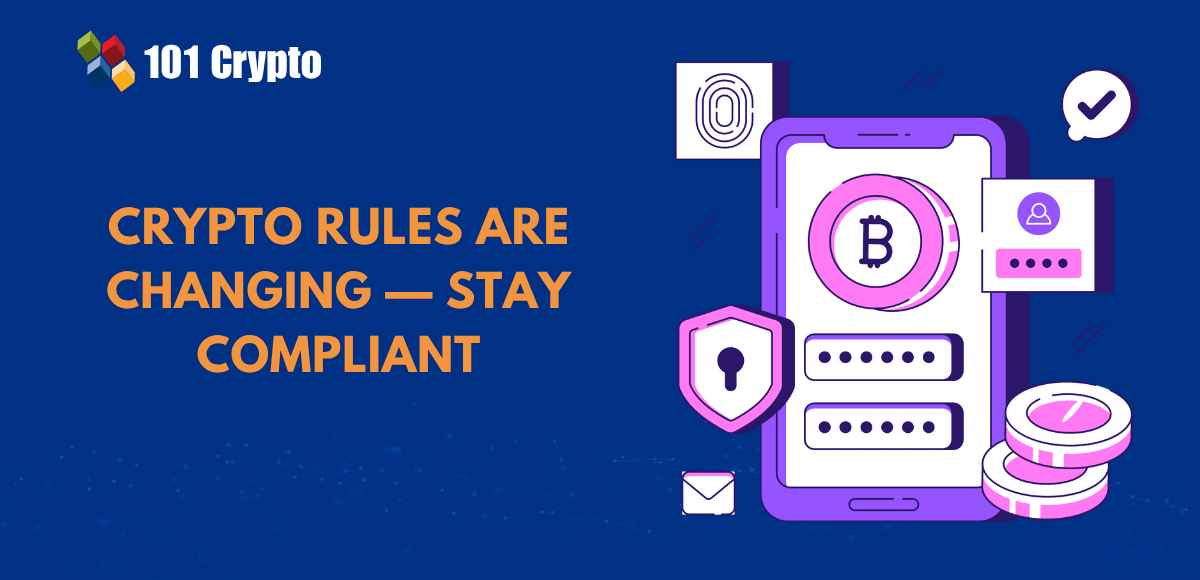The cryptocurrency landscape has been evolving at a staggering pace with new assets making a huge impact. The crypto market is worth more than one trillion, a feat which is almost impossible for many industries. You can notice new digital currencies, NFTs, and DeFi apps emerging every day that shape the crypto landscape. Do you want to know about platforms that allow efficient digital asset trading? The different types of cryptocurrency exchanges in the market may create confusion for beginners who don’t know anything about a crypto exchange.
On top of it, professionals have also been showing interest in learning about crypto exchanges to understand them better. Let us learn more about the fundamentals of crypto exchanges and how they work.
Enroll now in the Bitcoin Fundamentals Free Course to gain deep insights on how the Bitcoin blockchain works.
Definition of Crypto Exchanges
The term ‘crypto exchange’ gives out a lot regarding its functionality, especially with the similarities to stock exchanges. Crypto exchanges are marketplaces where investors can buy and sell cryptocurrencies such as Bitcoin or Ether. You can use the digital marketplaces through mobile or desktop apps like brokerage platforms. On top of it, crypto exchanges also provide different types of trading and investing tools alongside diverse options for crypto trading.
The answers to “what are cryptocurrency exchanges” also paint them as platforms where a large number of users gather at one place for crypto trading. One of the notable reasons to choose crypto exchanges for buying and selling crypto assets is the freedom from worries of finding a buyer or seller. The crypto exchanges charge transaction fees based on the type of transaction or volume of the transaction you carry out on the platform.
Prior to the arrival of crypto exchanges, people could only receive crypto through mining or through transactions in different channels. As of now, you can find multiple crypto exchanges worldwide with support for various cryptocurrencies. Each crypto exchange has its distinct fee structure and approach to security that makes them useful for different users.
Variants of Crypto Exchanges
The next important highlight in any discussion about crypto exchanges is the outline of their different variants. You will find two common types among all the examples of crypto exchanges, the centralized exchanges and decentralized crypto exchanges. On top of it, you may also come across hybrid crypto exchanges that blend the best traits of centralized and decentralized exchanges. The following sections will help you understand the strengths and limitations of different types of crypto exchanges.
-
Centralized Exchanges
The most common type of crypto exchanges that you can find in the market are centralized cryptocurrency exchanges. You can find a lot of similarities between traditional stock exchanges or full-time brokerages and centralized crypto exchanges. Centralized exchanges run under the command of a single authority, thereby creating concerns of manipulation.
Some of the notable benefits of centralized crypto exchanges include enhanced liquidity, faster transactions and easier recovery of your assets. However, centralized exchanges are more vulnerable to security risks due to centralization. Hackers can target centralized exchanges that store valuable and sensitive data on centralized servers.
-
Decentralized Exchanges
The top crypto exchanges list will be incomplete without a few decentralized exchanges in it. Decentralized exchanges are the opposite of centralized exchanges as they use the distributed ledger approach to offer crypto trading. The best thing about DEXs is the assurance of freedom from intervention by any centralized authority. Users are in complete control of their digital assets and keys, thereby making a decentralized exchange completely autonomous.
The distinctive feature of DEXs is the easier accessibility as users don’t have to go through different types of formal checks such as KYC verification. In addition, decentralized exchanges also offer the assurance of additional security for your transactions. Decentralized exchanges offer complete control over the custody of your funds alongside ensuring better security and privacy. You must also remember that decentralized exchanges have certain limitations like low liquidity.
-
Hybrid Exchanges
Another new type of crypto exchange that has been grabbing headlines in the crypto space is a hybrid exchange. Hybrid exchanges bring the mix of centralized and decentralized crypto exchanges while focusing on their strengths. For instance, the features of hybrid crypto exchanges explained for beginners would outline the benefits of convenience and security. The benefits of hybrid exchanges also include the assurance of highest privacy levels possible for a crypto exchange. However, hybrid exchanges are still a new concept and have not reported heavy transaction volumes like their counterparts.
Decoding the Way a Crypto Exchange Works
The working mechanism of crypto exchanges, centralized or decentralized, is a completely new and innovative concept. You can think of it as a way to match buyers with sellers on a platform or marketplace. The first step begins with setting up an account on a crypto exchange and depositing fiat currency in the exchange. Once you have deposited fiat currency in the crypto exchange, you can execute the first trade by placing an order to buy cryptocurrencies.
After submitting the buy order, the exchange will match your order with lowest-priced offers. Upon finding the right match, the exchange deducts the corresponding amount of fiat currency from the user’s account. Once the order matching is complete, you will have ownership of the cryptocurrency you bought on the exchange.
Interestingly, centralized and decentralized cryptocurrencies follow different approaches for matching orders. For instance, centralized crypto exchanges utilize order books while decentralized exchanges use automated market makers. The order books include a collection of certain orders that showcases the number of units that have bids on them with distinct price points. Automated market makers or AMMs in decentralized exchanges use trading pairs to ensure that users can execute crypto trades effortlessly at any time.
Unraveling the Benefits and Limitations of Crypto Exchanges
Cryptocurrency exchanges might seem like the only solution that you should try to get some crypto assets. On the contrary, crypto exchanges also have some limitations that you should notice before using one. The foremost advantage of all types of cryptocurrency exchanges is the assurance of an easy experience of buying cryptocurrencies. You can also rely on crypto exchanges as reliable and legitimate platforms for cryptocurrency trading. On top of it, you may also find crypto exchanges that offer tax forms to users, thereby enabling easier computation of crypto taxes.
The limitations of crypto exchanges don’t find the limelight as much as their advantages. One of the foremost entries among the setbacks of crypto exchanges, especially the centralized exchanges, is the vulnerability to security risks. The problem with centralized crypto exchanges also continues with the possibilities of an exchange shutting down and making your funds inaccessible. Another crucial aspect in the limitations of crypto exchanges is the ownership of your crypto assets. With a centralized custodian keeping your assets, it is impossible to believe that you have complete ownership of the crypto assets.
Important Factors to Check in Crypto Exchanges
The importance of choosing the right crypto exchange can never be undermined. You should always practice caution while choosing cryptocurrency exchanges as it will serve as the gateway between you and the crypto world. Users must remember that the crypto market is largely unregulated and the smallest mistake can lead to humongous losses. Therefore, you should always check certain things in a crypto exchange to ensure that it does not cheat you.
First of all, you must check whether the exchange has been registered as a securities broker. You should also review the crypto exchanges list to check the jurisdiction in which they operate. As a result, you can find out whether the exchanges have been evaluated by regulatory authorities. Most important of all, crypto exchanges must offer complete disclosure on what they do with your funds and assets.
The fall of big crypto exchanges like FTX has created more concerns about their utility. At the same time, crypto exchanges that don’t offer complete transparency might not be the best pick from the beginning. You must check whether the cryptocurrency exchange has a legitimate presence on different social media channels. The other details of crypto exchanges that help in evaluating its validity include the wallet of the exchange and their support system.
Once you have confirmed that the crypto exchange will be an ideal pick for your needs, it is important to go through the history of the exchange. In addition, you should check the security features, available trading pairs, and fees of the exchange. Users must also check whether the exchange provides easier options to deposit and withdraw money. The best suggestion to pick an ideal crypto exchange is to do your research and complete due diligence on the exchanges that you assume will fit your requirements.
Final Thoughts
The introduction to crypto exchanges explained their primary utility, different types, and their working mechanism. You can use a crypto exchange as a marketplace for buying and selling crypto orders. Traditional crypto exchanges follow a centralized approach which lacks transparency albeit with higher liquidity and options for recovering lost assets. On the other hand, decentralized exchanges align with the vision of decentralization and ensure that users have complete control and ownership of their assets. While choosing a crypto exchange, you must pay attention to different aspects such as the fee structure, security, and usability. Learn more about cryptocurrencies with the most trusted platform for blockchain and crypto training right now.
Disclaimer
The article should not be taken as, and is not intended to provide any investment advice. Claims made in this article do not constitute investment advice and should not be taken as such. 101 Crypto shall not be responsible for any loss sustained by any person who relies on this article. Do your own research!







